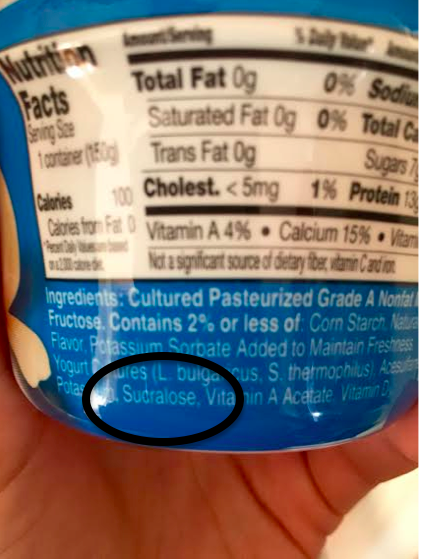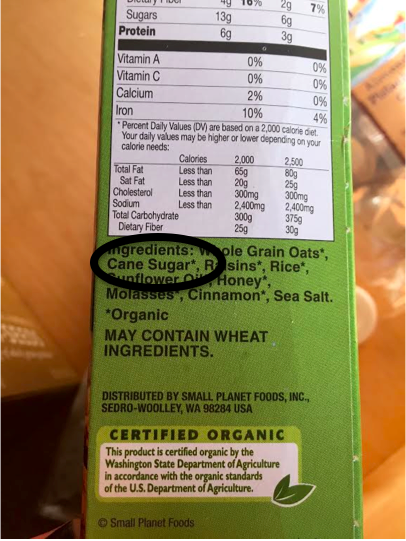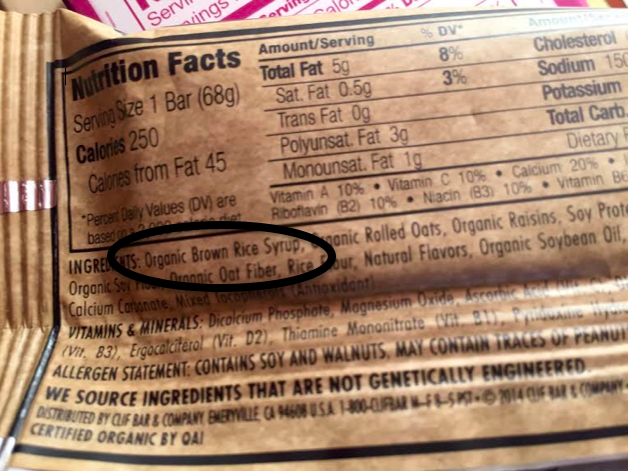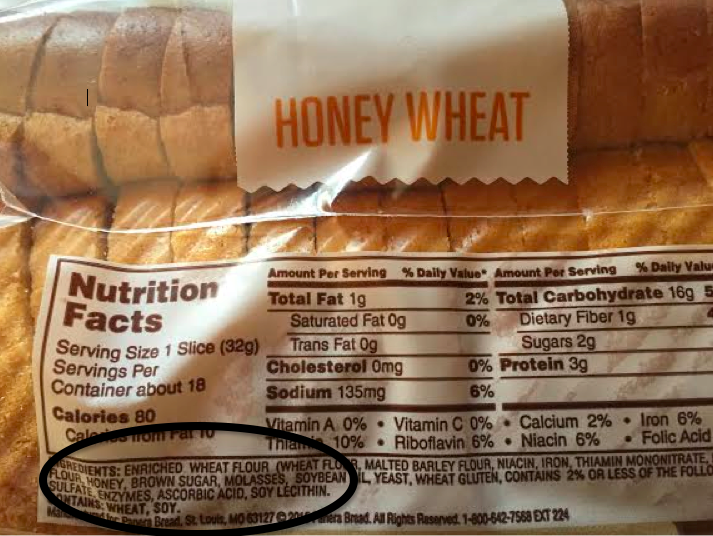Regardless of how much nutrition information a person has, there are a few no-brainer facts that, at this point, the majority of people know to be true: Trans fats are a big no-no. Fast food is cheap for a reason. And Americans eat too much processed sugar. In fact, recent research suggests it’s more harmful than tobacco.
The data clearly show that an excess of white table sugar is bad for us. But what isn’t so clear is how to spot added sugar in packaged products. Large processed food companies (think Coca-Cola Co., Nestle, Kellogg Co., etc) have gotten savvy with their ingredient lists. So, just because the label doesn’t explicitly list “sugar” doesn’t mean the product’s not chock-full of the lethal ingredient. There are nearly 60 different names for sugar. Talk about wearing many hats… Energy bars, crackers, yogurt, bread, peanut butter, granola– sugar is hidden in about 80% of all packaged foods. Just that dense reading your philosophy professor assigned, nutrition labels these days require just as much scrutiny.
These are just a few of the following commonly used synonyms for “sugar.”
1. Anything ending in “ose”

Photo by Abbey Fernandez
I barely remember anything from AP bio but one piece of information that did stick with me is that sugars end in “ose” and enzymes end in “ase.” Useful information, especially considering I still don’t know what a mortgage is. But anyway, any “ose” ending words are just another way of saying “sugar-laden.” Words you should be on the lookout for include sucrose, maltose, dextrose, fructose, glucose, galactose, sucralose, lactose and of course, the infamous high fructose corn syrup.
2. Anything with the word “cane”

Photo by Abbey Fernandez
Sugarcane is a plant, specifically a type of grass. But just because it comes from the ground like kale or brussels sprouts does not grant it vegetable status. Our excessive consumption of sugar is what fuels sugarcane agriculture. Watch out of the following sugarcane derivatives: Cane juice, evaporated cane juice, cane syrup, Sugar in the Raw or turbinado.
3. “Syrup” anything

Photo by Abbey Fernandez
There’s a reason why syrup was one of Buddy the Elf’s main food groups– it’s sweet and delicious. But beware, syrup doesn’t just mean the kind that goes on pancakes. “Syrup,” like all the forms listed below, is just a sticky liquid form of sugar. Brown rice syrup, corn syrup, cane syrup, maple syrup, yacón syrup, buttered syrup, carob syrup, golden syrup, agave syrup, malt syrup, sorghum syrup and refiner’s syrup.
3. Incorporating “health” buzzwords

Photo by Abbey Fernandez
Processed food companies don’t live under a rock– they’re all well aware of a rising wellness initiative that’s making people reevaluate their food purchases. So, they appeal to the concerned consumer by using “healthy” sweeteners. All of the following ingredients are simply strategic rhetoric employed to trick the consumer into thinking they’re being health conscious. Maybe the sugar in the product is organic, but that doesn’t change the way it harms the body. Sugar is sugar, no matter which health buzzwords the companies use to disguise it. Agave, agave nectar, coconut palm sugar, organic cane sugar, molasses, honey, beet sugar, date sugar, fruit juice concentrate and raw sugar are just a few tricky substitutes.
“Sugar” is just a general term and processed food companies are aware of the negative connotation the ingredient bears. They’ve gotten tricky by using many alternative names for the same toxic substance. The next time you’re checking a food label, remember that just because it doesn’t have the word “sugar,” doesn’t mean its not an ingredient in the product. It’ll be ok, though, just remember to use a mental sugar thesaurus next time you food shop.

Photo by Abbey Fernandez
#SpoonTip: Don’t forget to watch out for artificial sweeteners as well. Splenda is officially really bad for us. So, artificial sweeteners, though they may be 0 calories, can be just as harmful as the real stuff.


